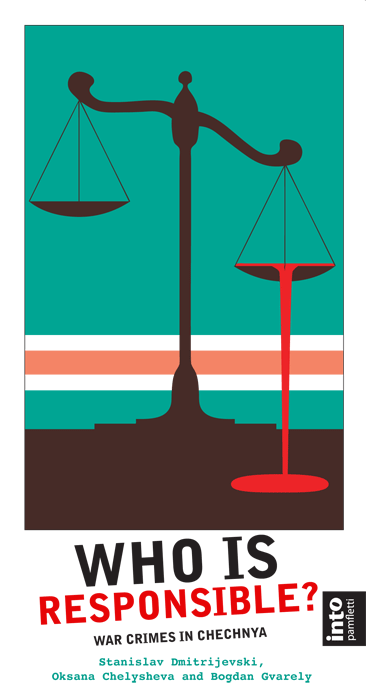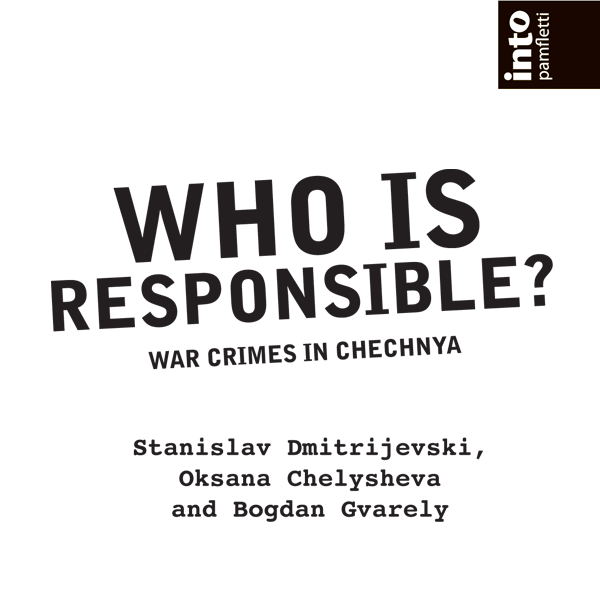The subject, goals and structure of the research, details on applied methodology
Table of Contents
The research into the international criminal law and its applicability to gross human rights violations perpetrated in the course of the conflict has been carried out with the aim to analyze massive violations of humanitarian and human rights laws in the course of the armed conflict in Chechnya in the light of the international criminal law. Applying this approach, we demonstrate that the violations under consideration hold all the necessary classifying indications of international crimes, specifically war crimes and crimes against humanity and that those responsible for perpetrating them ought to be held criminally accountable.
Impunity was and remains the most crucial issue that various international bodies, human rights organizations and the ECHR have permanently raised. In all the "Chechen" cases the ECHR has held that there have been violations of Article 2 relating to the authorities' failure to carry out effective criminal investigation into the circumstances of the crimes. Perpetrators have not still been brought to account. According to thousands of cases filed by human rights organizations, the picture is the same. There have been few cases when the Russian military who committed grave offences against civilians have been brought to criminal accountability. Their singularity just accentuates the general tendency.
It would seem that the situation with holding criminals belonging to the Chechen side of the conflict to account is much better. The Russian courts have passed and keep passing hundreds of sentences with regard to Chechen militants accused of murder, terrorism and other severe crimes. However, evidence established by human rights organizations demonstrate that the majority of such cases have been fabricated and the use of torture to extort testimonies from suspects of the Chechen ethnicity have become systematic. Besides, the Russian courts habitually describe assaults by Chechen combatants against their armed enemy as «murder» and «terrorism». Thus, crimes against people protected by international humanitarian law are characterized as actions taken by the state against participants in an armed uprising. This suggests a systemic bias, indicating that investigation and prosecution of crimes committed by representatives of the separatist movement cannot be regarded as either effective or impartial or compliant with international standards.
The issue of impunity in relation with the Chechen conflict was considered by the 13th session of the Parliamentary Assembly of the Council of Europe (PACE). We regard Resolution N1323 from 2 April 2003 by the PACE as a reason for our research. Paragraph 10 (iii) of this document is a recommendation which could become historic. It states:
«To ensure that those responsible for abuses are brought to justice, the Assembly <…> considers that, if the efforts to bring to justice those responsible for human rights abuses are not intensified, and the climate of impunity in the Chechen Republic prevails, the international community should consider setting up an ad hoc tribunal to try war crimes and crimes against humanity committed in the Chechen Republic.»
Since the time the Resolution was adopted, there has been no tangible progress in Chechnya with regard to the problem of impunity. It is possible to argue whether the situation with human rights has improved or not in the Chechen Republic. However, it is undeniable that the Russian Federation either fails or refuses to hold effective investigation into the majority of grave crimes against civilians committed during the conflict.
It was clear from the very beginning that a courageous call by the PACE to establish the international tribunal could be nothing more than a statement of intent, under current political circumstances. There are mechanisms in the current system of international relations that let the Russian Federation block establishment of such a tribunal at any stage. However, the improbability of establishing the tribunal on Chechnya right now does not exclude its establishment in some foreseeable future. The world keeps changing and the fates of Slobodan Milosevic, Radovan Karadzic, Augusto Pinochet, Saddam Hussein, Ieng Sary and other international criminals are the perfect illustration of the rapidness of these changes. In addition, the prospect, even remote, of international criminal liability for the initiators of the Chechen tragedy may constitute a deterrent for potential future perpetrators if they would take this prospect to be realizable.
Previous experiences and possible solutions
In March 2006 the Russian-Chechen Friendship Society, an NGO where most authors of the present research were working, addressed a letter to a number of reputable national and international human rights organizations in Russia, Europe and USA. The letter contained a proposal to join together the efforts of various organizations in order to establish, referring to the PACE Resolution N1323 (2003), a joint non-governmental group aimed at systematic promotion of the idea of an international criminal tribunal for Chechnya and at working out correspondent legal and substantive provisions for such an eventual tribunal or other judicial body having jurisdiction over international crimes committed in the context of the Chechen conflict. We were sure that the preliminary work on collecting, fixing and analyzing the evidence and on preparing the legal basis for this judicial body should start as soon as possible in order to ensure not only the establishment of the Tribunal when political circumstances would permit it, but also its efficient functioning.
However, bringing up this proposal for a constructive discussion, we faced two considerable obstacles. The first one concerned the experts from the Russian human rights organizations who have been involved in activities on Chechnya for a long time and have accumulated a unique database on the crimes committed there. At the same time, unfortunately these experts demonstrated their inadequate possession of information on the contemporary state of the international criminal law.
...



